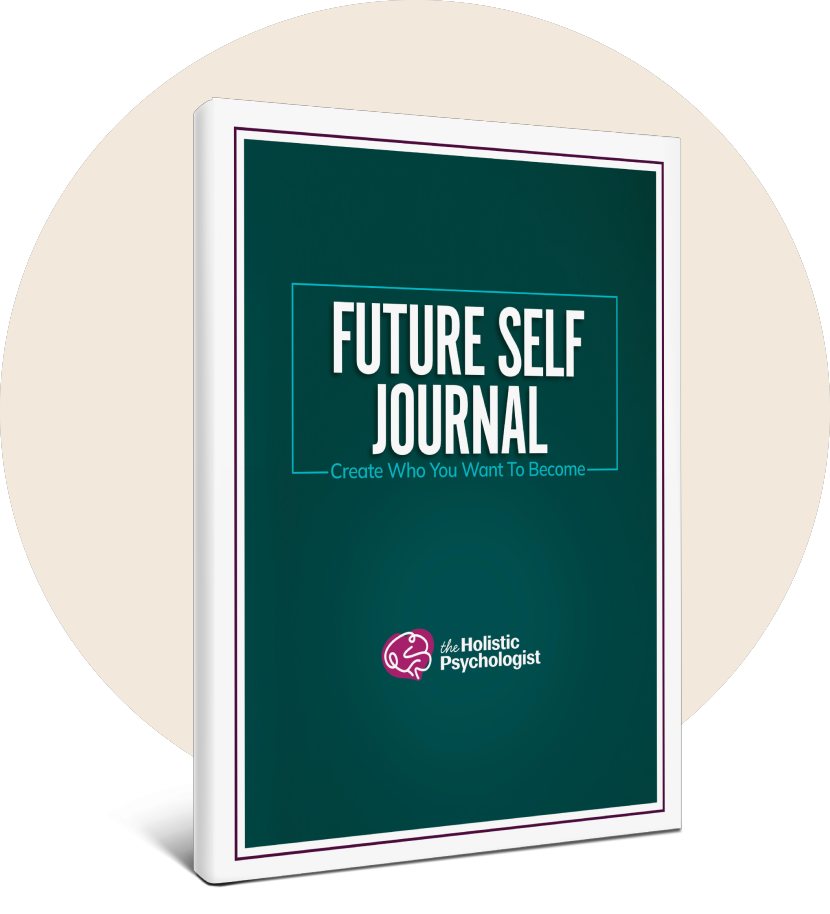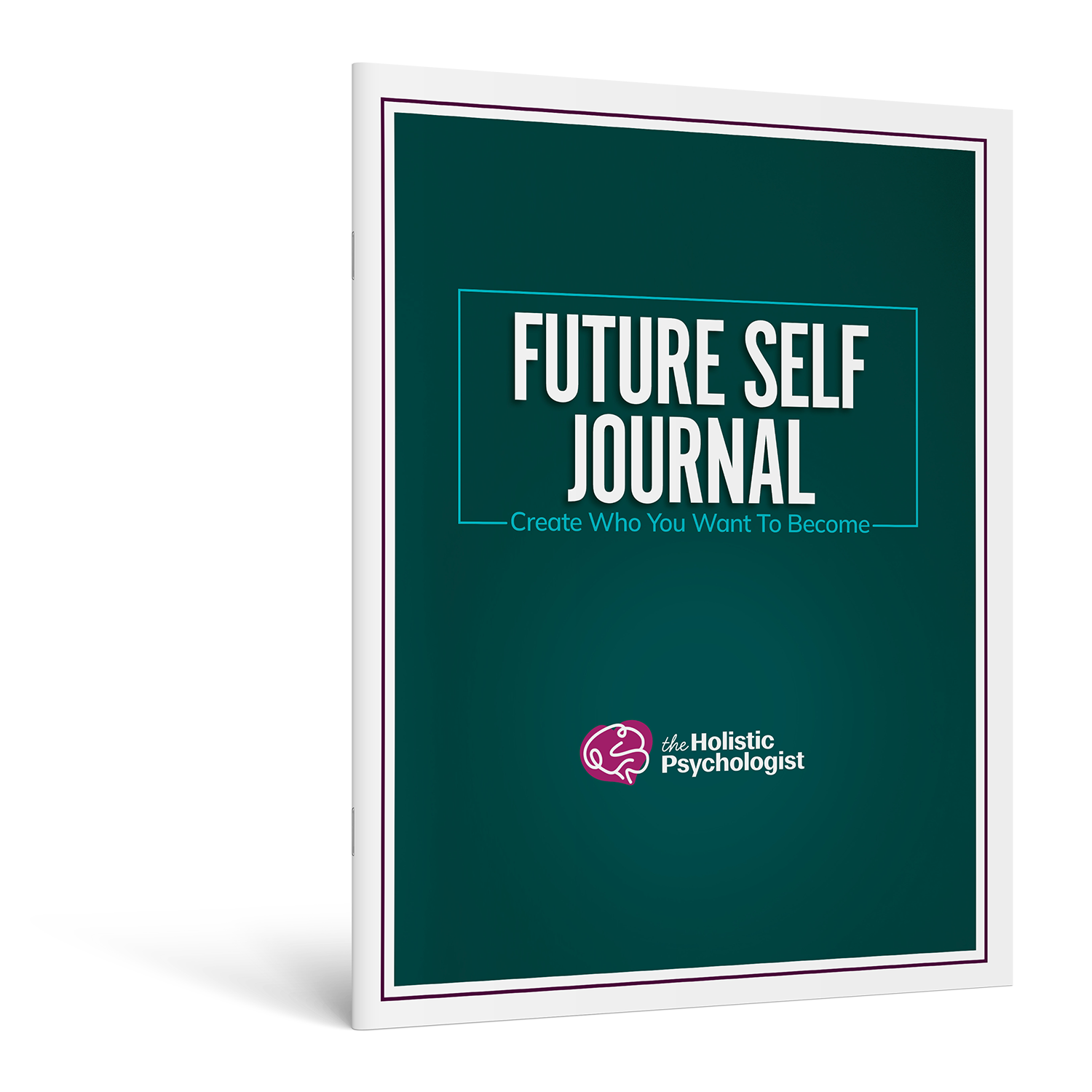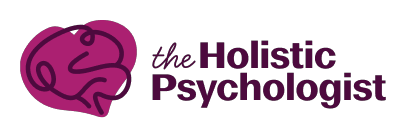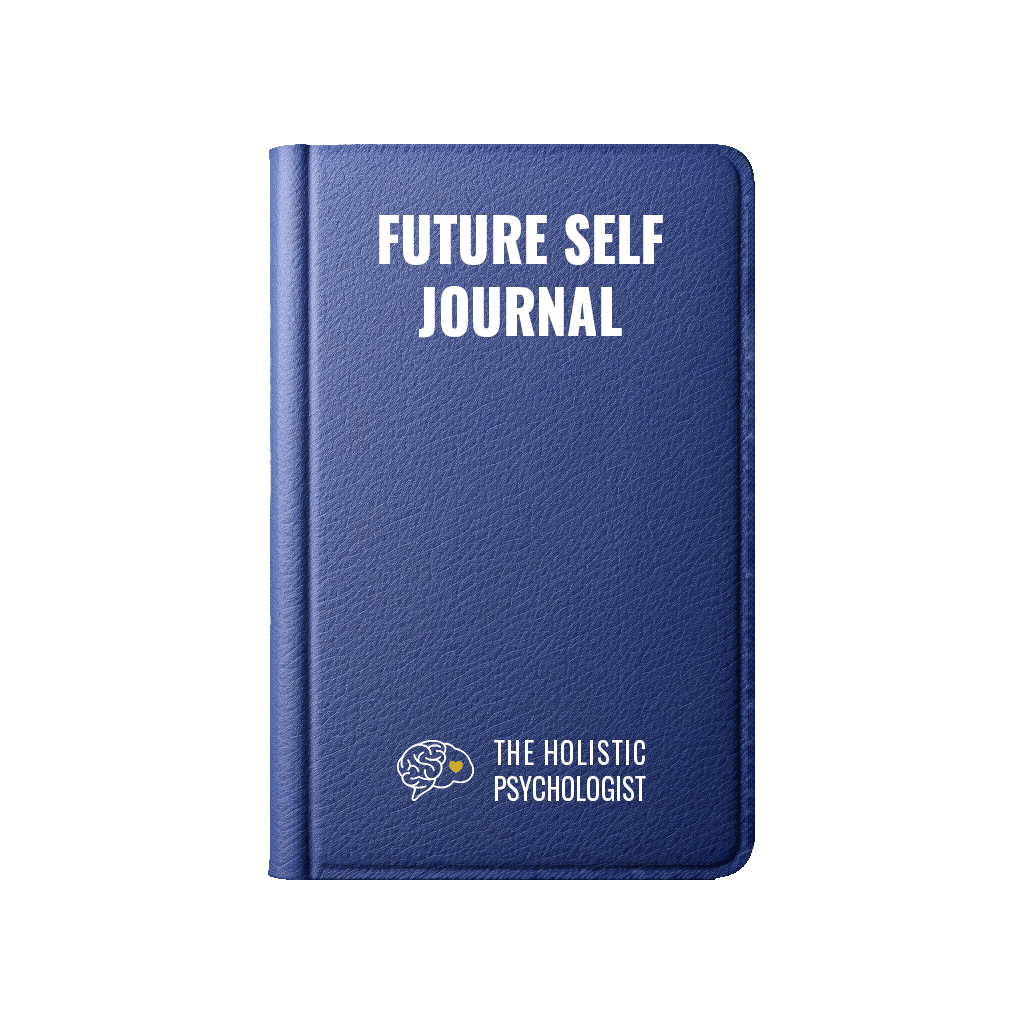Anxiety was just a part of who I was, because I’d experienced it my whole life. With a lot of knowledge and commitment I healed my anxiety. My hope is that my sharing my own story, I can help others do the same. Healing anxiety is possible for anyone who wants it badly enough.
My Story
Anxious thoughts started in my earliest memories of childhood. I would lay in bed at age 5 or 6 having thoughts that someone would break in. If my dad was traveling for work, I’d stare at the clock with a knot in my stomach hoping he’d get home safely. My internal anxiety made me a shy kid. When guests came over, I would literally hide under tables or have a death grip around my moms leg. The world was a scary place for me.
Of course now I understand my steady diet of ice cream, cookies, and processed foods played a major role in this, but more on that later.
I developed the ability to channel my anxiety. It became a positive, functional tool like it is for most text book overachievers. I was a straight A student and a star athlete. I could never relax until every assignment was done. My room was spotless. I was organized. I won awards.
But inside I was a mess.
After college, I moved to New York City for grad school. This is when my anxiety started spiraling out of control. My chest was tight almost every waking moment. My sleep was terrible. I was lucky to fall asleep and if I did, I’d only stay asleep for a few hours before I’d wake up unable to fall back asleep.
I was still doing well in school, because studying had so long been a way I soothed my internal anxiety. But other parts of my life were suffering like personal relationships and my work at my externship. I was struggling to keep it all together, and turned to partying to numb what I was unable to cope with.
My second year in New York, suddenly I found out my mom needed to get open heart surgery. My anxiety went through the roof. I was drinking too much and started using drugs, but I rationalized it part of normal grad school behavior. Anyone who’s used anything to cover anxiety knows that it only adds fuel to the fire. I spent most of the week in a familiar cycle of studying and working, being hungover, and repeating it. It’s hard to believe I was that person but I knew nothing else.
Eventually I had my first panic attack.
I was sitting on my bed getting ready to meet a friend. My heart started pounding out of my chest and my hands and feet went completely numb. I tried to calm myself down but I couldn’t. Before I knew it I was full on hyperventilating.
Consciously I knew I was having a panic attack, but the surge of adrenaline was no match for rational thought.
I considered calling 9-11.
My hands shook and I could barely put on shoes as I got myself ready for the hospital. I was convinced I was dying.
If you’ve ever had a panic attack, you have one thing on your mind: not having another one. Two weeks later I was sitting across from a psychiatrist who diagnosed me with panic disorder and handed me two prescriptions. One for an SSRI and another for a benzodiazepine.
Back then, I was being taught and bought into the “broken brain” model of conventional psychology. Medication just seemed necessary to me at that time. I spent 4 years taking them every day. I convinced myself I would need them my whole life.
One day, during a YouTube binge, I came across a of Dr. Natasha Campbell McBride. She was talking about her book Gut and Psychology Syndrome. It was the first time I was hearing about the microbiome and how it influenced behavior. They say when the student is ready the teacher appears. I was ready. Her work sent me down a rabbit hole of obsessive learning that changed my own mindset and the way I treat clients forever.
I couldn’t unlearn what I was learning.
By then I had finished up my PhD, and started working in the field. In a decade of school, I’d never heard of anything I was learning on my own. The microbiome, gut-brain axis, probiotics, and inflammation were all completely new to me. All of the sudden I’m learning that 70% of serotonin is made in the gut and bugs in our gut influence our moods. To say my mind was blown was an understatement.
I was armed with a new understanding that anxiety is not a disorder but symptom with a root cause looking to be corrected.
Physical vs. Mental Anxiety
I think its important to address the difference between physical and mental anxiety. Mental anxiety is a normal adaptive human response to a threat. It’s a quick fight or flight response when we are in danger that has helped us to evolve. Today, this kind of anxiety looks like nerves before a presentation or anxious jittery feelings before a date. It’s short, sweet and appropriate to the experience.
Then there’s physical anxiety.
We label this generalized anxiety disorder, panic disorder, or social anxiety disorder. It’s a knot in the chest, difficulty breathing, cold sweats, and sometimes terrifying panic. It’s chronic meaning it can happen for days, weeks, or months at a time for what seems like no reason. Or, there is an underlying reason but the anxiety seems to not match the circumstance.
My anxiety was both. Racing thoughts took control of my mind and physically I was tense, on-edge and at times even shaky. I just couldn’t seem to shake any of it. It would come and go in intensity, but its presence was always there. Sometimes it would be slight or non-existent, and then out of nowhere it would make me want to stay under the covers all day.
Getting to the Root Cause
While trying to heal my anxiety, I spent months studying everything I could. What shocked me is how many other issues look like anxiety. Many people are dealing with a completely separate issue and experiencing anxiety as a result of that issue. Anxiety is our loud and painful call to pay attention and rebalance the body and mind.
By getting to the root cause, we give ourselves the opportunity to heal.
The Root of Anxiety
Blood Sugar Imbalance
Anyone who is experiencing chronic anxiety needs to first look at their blood sugar levels. With the diabetes epidemic, anxiety is often overlooked in this equation. But unstable blood sugar and anxiety symptoms are almost identical.
Anxiety from Hypoglycemia
The standard American diet of sugar and carbs is literally a recipe for chronic anxiety. Daily spikes in blood sugar trigger constant snacking and anxiety-like symptoms.
Two of the most common are Hypoglycemia and insulin resistance.
In hypoglycemia, there’s a spike in blood sugar, then a major drop. Hypoglycemia literally means “low sugar.” When this happens the brain and body start to panic because their resource (sugar) needed for energy is getting low.
The brain needs more energy than any other organ in the body. It sends an SOS message to the adrenals which release the stress hormone cortisol. The body goes into a fight or flight state.
In this state we feel anxiety symptoms like heart palpitations, panic, fear, shakes and dizziness.
In this case study (link) there was a link between diet that caused hypoglycemia and anxiety. A 15 year old female presented with severe anxiety which included excessive worry, discomfort in stomach, and heart palpitations that impacted her ability to function. Her anxiety was so severe she missed school regularly.
Her formal diagnosis was generalized anxiety disorder. She rated her anxiety an 8/10.
Her diet was the typical standard American diet of high carbohydrates and little fat. This included granola bars, bagels, orange juice, pastas and constant snacking. When switched to high protein higher fat diet her symptoms went to a 4/10 with higher energy, fewer stomach aches, and greater ability to concentrate.
She reported that if she went back to her previous diet, her anxiety immediately returned.
Anxiety from Insulin Resistance
Every time you eat carbohydrates, the body breaks them down into glucose as your body digests them. Glucose is released into the blood stream, causing a rise in blood sugar. The pancreas responds by releasing insulin to balance the spike in blood sugar. If blood sugar levels are too high, over time the cells stop responding to insulin. Excess blood sugar stays floating around doing all types of damage, especially to the brain.
Insulin resistance alters neurotransmitter production like dopamine and affects the way neurons fire in the brain and communication between brain cells (link).
A study done by the Joslin Diabetes Center found a direct link between the brain and behavioral disorders (link).
Nutrient Deficiencies and Anxiety
When someone’s experiencing chronic anxiety nutritional deficiencies aren’t the first thing that come to mind, but they should be. Our bodies need a specific amount of nutrients that work together in a sophisticated symphony with each other. Deficiencies or incorrect ratios of nutrients often manifest as anxiety-like symptoms.
Here are a few of them:
Magnesium: a mineral that supports 300 biochemical reactions in the body. Magnesium is essential for proper functioning of the nervous system and neurotransmitter activity. It’s closely tied to GABA production, and low levels contribute to anxiety.
Zinc: also plays a vital role in neurotransmitters and the central nervous system. Studies show that significantly low zinc levels can trigger anxiety (link). Zinc supplementation has been shown to reduce symptoms of anxiety (link).
Vitamin D: I talk a ton about how important sunlight is for mental heath. Vitamin D is a hormone that’s connected to almost every system in the body. It plays a key role in anxiety and many other psychiatric disorders. It’s estimated that up to 85% of us are not getting enough. That’s epidemic proportions, and a reason to be conscious about spending time in the sun.
Iron: iron is found in every cell of the human body. It’s role is to carry oxygen to different organs in the body, which is why low level lead to tiredness and irritability. Iron is key in the synthesis of serotonin, which can lead to anxiety. People with anxiety disorders have significantly lower levels of iron (link).
Omega-3 fatty acids: unfortunately, we’ve been told to fear fats and our brain have paid the price. Omega-3 fatty acids cannot be made by the body so they must be found in food. The brain is primarily made up of fat and needs omega-3’s for cognitive function and nervous system function. People with the most severe anxiety have the lowest levels of omega-3 fatty acids (link).
Microbiome Imbalance
Our entire GI tract is filled with tiny microbes. We have more bacteria than human genes. Our microbiome is a blue print that’s unique to us. It’s been influenced since birth by our mother, how we were born, and if we were breast fed. It continues to change throughout life.
As adults diet, sleep, and stress all influence our microbiome.
70% of neurotransmitters like serotonin are made in the gut then sent through to the brain via the gut brain axis. Our gut brain axis is a 2 way communication center between the gut and the brain. These microbes determine not only our overall health but our thoughts and mood.
When we have an imbalance of microbes meaning more ‘bad’ microbes than ‘good’ ones, all types of psychiatric disorders can happen from anxiety, to depression, and mood disorders.
A ground breaking study done at University College Cork, Ireland was the first to make a connection between microbes and a specific molecule called microRNA in the amygdala and prefrontal cortex of the brain (link).
Researchers took two groups of mice. One group was germ-free (no microbes) and the other was normal. In the germ-free mice, 103 microRNAs in the amygdala and 31 microRNA’s in the prefrontal cortex were changed compared to the normal mice. This was the first time a study showed that the gut physically changed the mind.
When researchers added back gut microbes into the germ-free mice the levels normalized. This is pretty mind blowing, and a reason that balancing the microbes in our gut should be a major part of any mental health treatment.
Stress
Everyone knows that stress affects us negatively, but chronic stress also physically changes the brain. Research done at UC Berkeley shows that chronic stress changes the production of myelin (the insulation around nerve cells) which disruptions the communication patterns within the brain (link).
Stress also influences the production of neurotransmitters which play a key role in anxiety.
Non-Celiac Gluten Sensitivity
It’s only when you stop eating gluten that you notice the insane amount of this we’re eating on a daily basis. Bagels and pastries for breakfast, sandwiches for lunch, and pasta for dinner are all the norm.
The mainstream idea is that only people with a rare condition called Celiac disease have issues with gluten, but there’s something that countless people have and are unaware of called Non-Celiac Gluten Sensitivity.
We’re unaware of how many people this actually affects because the body becomes tolerant to gluten over time. It’s only through doing an elimination diet that most people understand the affects of gluten.
If you’re on the fence about gluten, this paper (link) may change your mind. It showed that a protein in gluten called Gliadin triggers the production of Zonulin. Zonulin opens up spaces between the cells of intentional lining. We know this as leaky gut. Gluten pokes holes in the gut.
A leaky gut allows toxins to enter the blood stream and creates an immunological response. If you’re like most people who are unaware of a gluten sensitivity and continue to eat it, you’ll create chronic inflammation.
Inflammation is a root cause of nearly every psychiatric disorder including anxiety (link).
A New Concept of Anxiety
Understanding is everything. When I wrapped my head around what anxiety actually was, I made a commitment to lifestyle changes and within 9 months I had healed my life long anxiety.
I’m no longer on medication, and have a sense of inner peace and groundedness that I never thought was possible.
Here is what I did to heal my anxiety
A Complete Diet Overhaul
I ate a ton of junk growing up, but as an adult I started eating a vegetarian diet because I believed it was healthy. I was hearing all kinds of demonizing things about meat and pretty much all animal products in general. Discovering ancestral nutrition and bringing back fats into my diet helped to heal my brain and body. Though I’ve never gotten my levels tested, I believe my mostly plant based diet left me deficient in several nutrients.
The re-introduction of meat and animal products while also lowering my intake of carbs regulated my blood sugar and my moods. The brain fog I was suffering with constantly lifted. I had a lot more energy in my body and greater concentration in my mind.
Breathwork and Yoga
If you follow me on Instagram (link) you know that breathwork is an important part of my daily routine.
Anxiety is closely tied to the nervous system, and breathwork allows us to activate the parasympathetic or “rest and digest” part nervous system. This lowers cortisol and heals the gut while helping to re-wire neural pathways. Anxiety changes the brain physically, so breath work is the ultimate hack in creating new connections.
Sleep
I got serious about sleep hygiene.
For years, sleep was just not a priority for me. I would stay up to midnight (sometimes later) every night and hit snooze 2 or 3 times before waking up.
I could go on and on about the role sleep plays in repair of the body. The main magic that happens during sleep is something called autophagy. Autophagy is the body’s version of spring cleaning. It’s when all of the damaged cells and toxins are cleaned up and new healthy cells and connections are made.
I highly suggest reading “Why We Sleep” by Matthew Walker. It’s a fascinating read that will make you motivated to prioritize sleep (link). I am now in bed by 9:30 pm every night. It feels weird at first, but the energy payoff is worth it. With time I realized I wasn’t accomplishing much during those hours anyway.
Intermittent Fasting
Fasting is popular right now for many reasons. It has healing benefits for both the mind and the body. I don’t like to get particular with fasting windows because everyone is different. Fasting can stress some women’s bodies so its important to experiment on your own with this one.
I started with not eating before 12pm and after 6pm. I stuck with that for months and was amazed at how much energy I had an how much my mood changed. In about 6 months I had zero sugar cravings (huge for a sugar addict like myself) and also completely stopped snacking. My meals were high fat meals that satiated me.
I’m no longer strict with exact times of eating, but I only eat twice a day and have no desire to snack. Since my blood sugar is regulated, I have food freedom. If I’m flying or find myself in a place where the food isn’t what I would normally eat I can pass. No more shakiness or angry sensations. This one is a major game changer.
Sunlight
I spent years afraid of the sun. I’d wear sunblock, hats, sunglasses and run for cover if I thought I was getting too much sun.
It’s obvious to me that the sun isn’t a villain. Our ancestors spent all day outside, and as we’re spending more and more time in offices avoiding the sun, skin cancer rates are going up. I believe this has more to do with blue light exposure and nutritional deficiencies.
The data on Vitamin D is eye opening. I aim for at least 1 hours a day, and use the app D minder (link) to track how much I’m getting.
Subconscious Programming
Childhood experiences can wire pathways that cause anxious responses.
It’s important to understand that the brain is a very literal organ. It does not understand the difference between perception and reality. Our brain is neuroplastic meaning it can change throughout life. Using affirmations and visualizations, we can create experiences in the mind that change the pathways of the brain.
I used affirmations every day for months before I noticed a change. I still use affirmations daily. They’re a major part of re-programming thoughts, behaviors, and patterns.
I like to do affirmations first thing in the morning when my mind is sharpest, but everyone is different. It’s important to understand that you cannot just mindlessly say these affirmations. In order for the brain to have a new experience the body must be involved. This means as you are concentrating on the affirmations you need to imagine how it would feel if the affirmation were true. You’ll feel this in your body and in this moment the mind and body connect. Only through this connection can new pathways be formed.
Here is an affirmation to heal anxiety:
Take a few short breaths and consciously tell your body it’s going to completely relax. As your visualization techniques get stronger it will be easier and easier to get into this state. Do not get frustrated if you find this difficult at first. Affirmations are a practice that require repetition.
I am calmness
I am calm in all situations
I choose my reaction
I do not react, I respond
My nature is peace
I am peace
In moments where I am out of alignment I can always choose to go back to peace
I am safe, I am protected, I am awareness
My body is healing
My mind is clear
I release anxiety as a part of my identity
I am peace
I hope this this guide and my own story helps you on your own journey of healing. You are powerful, capable, and whole. Suffering with anxiety does not have to be a lifetime battle.











